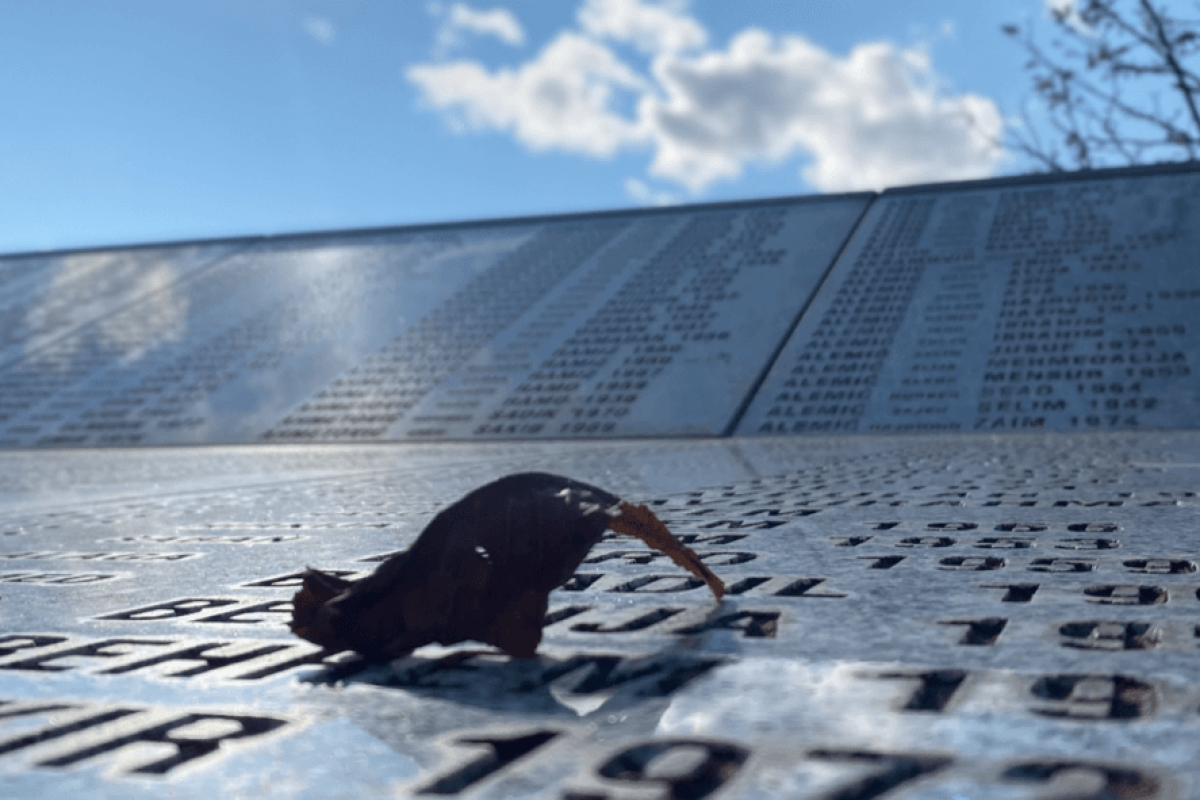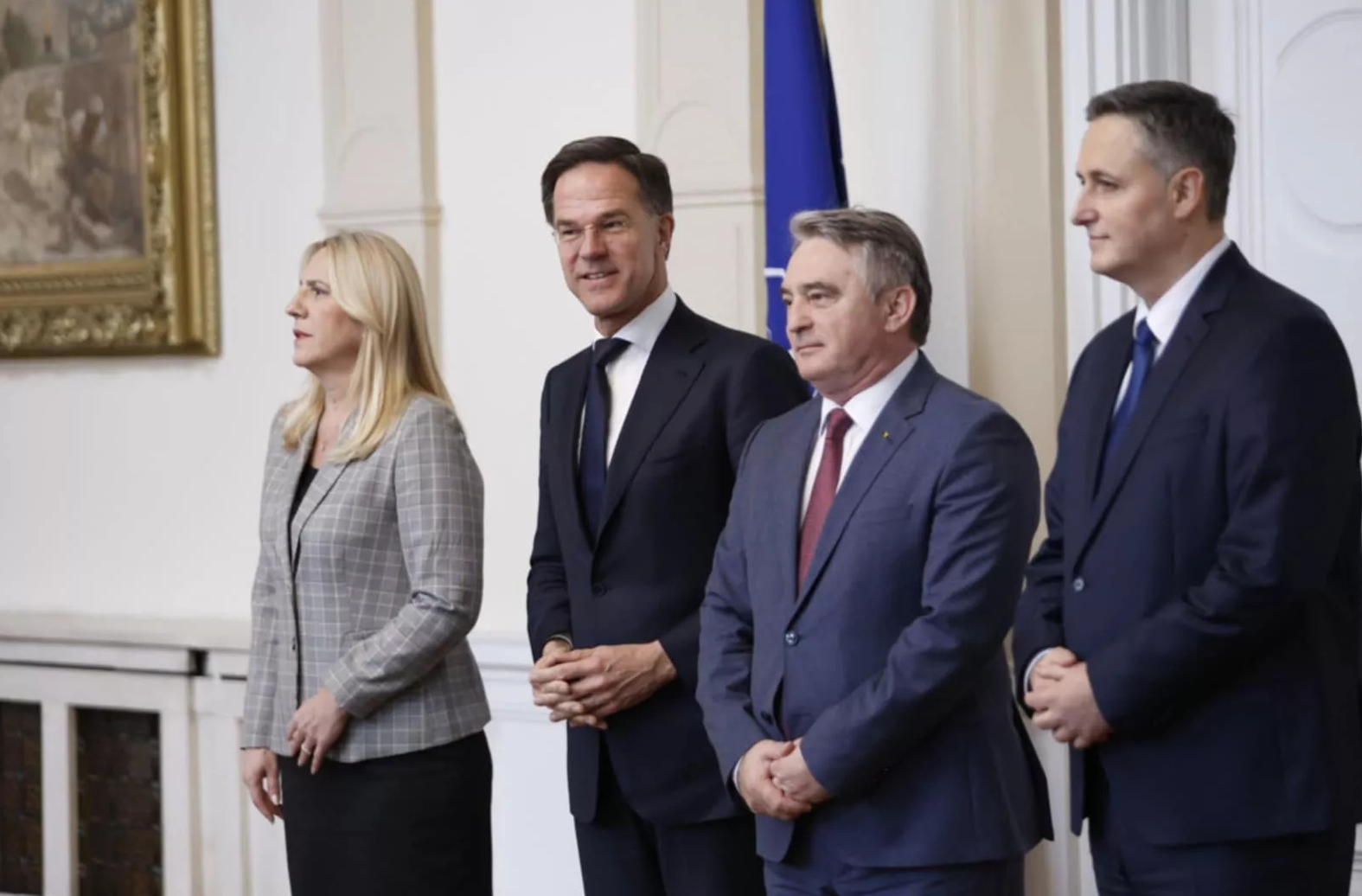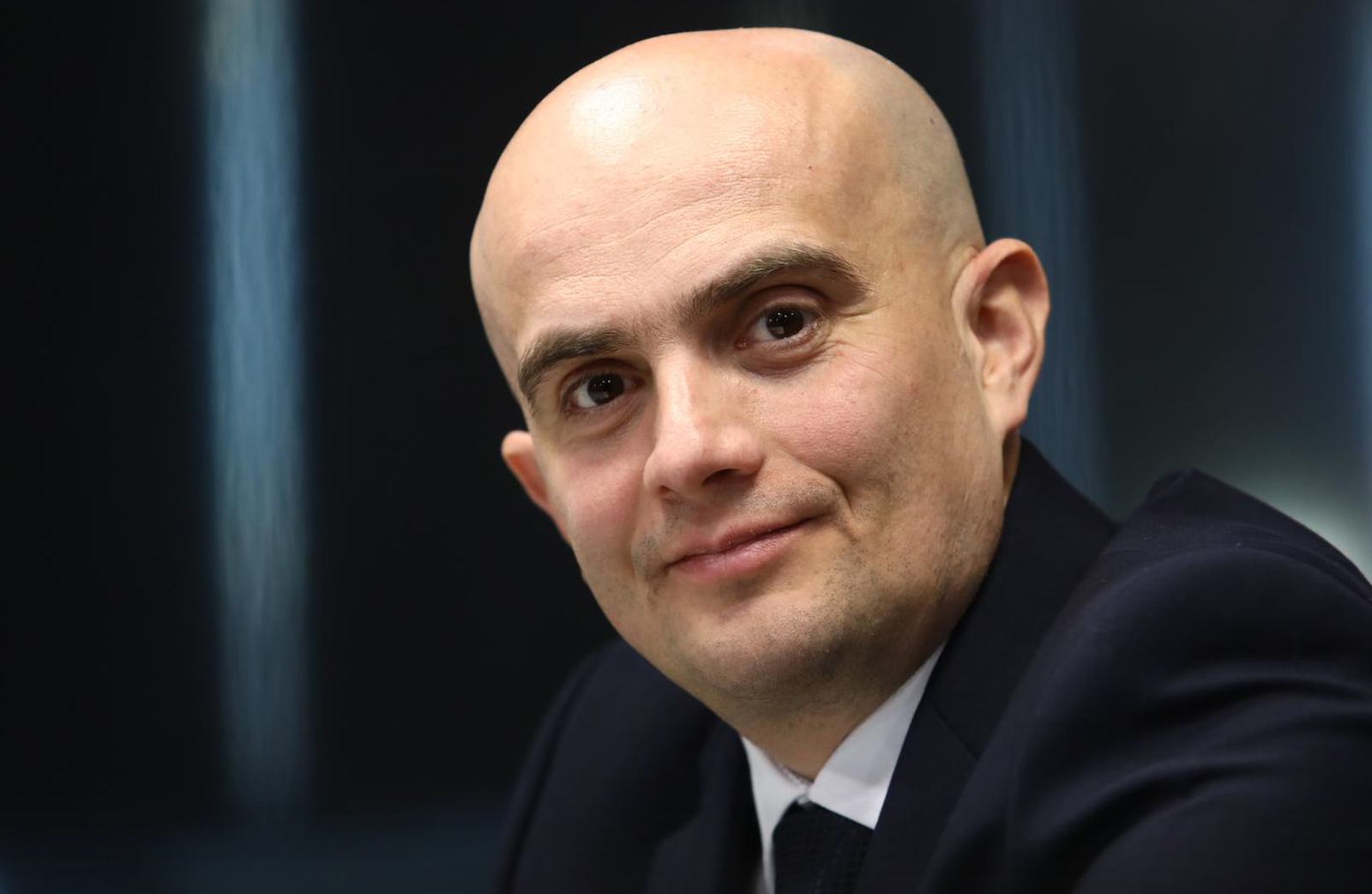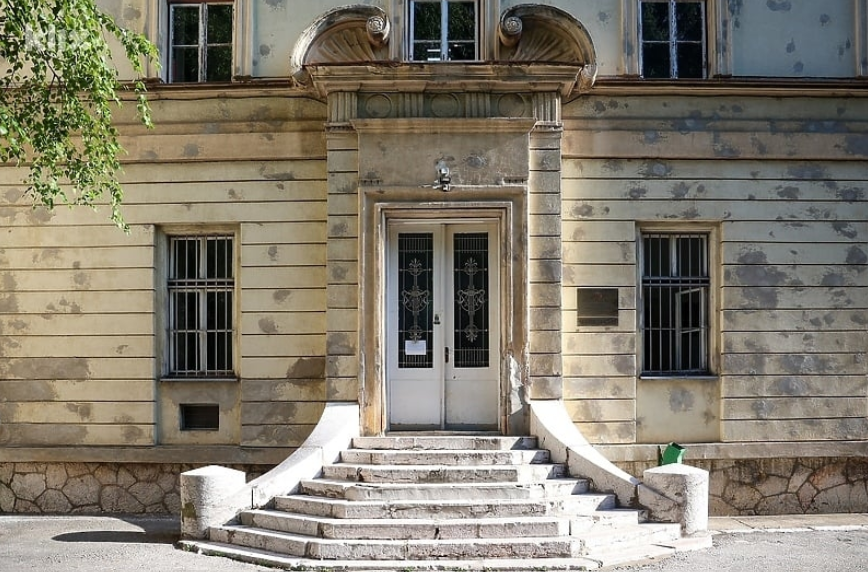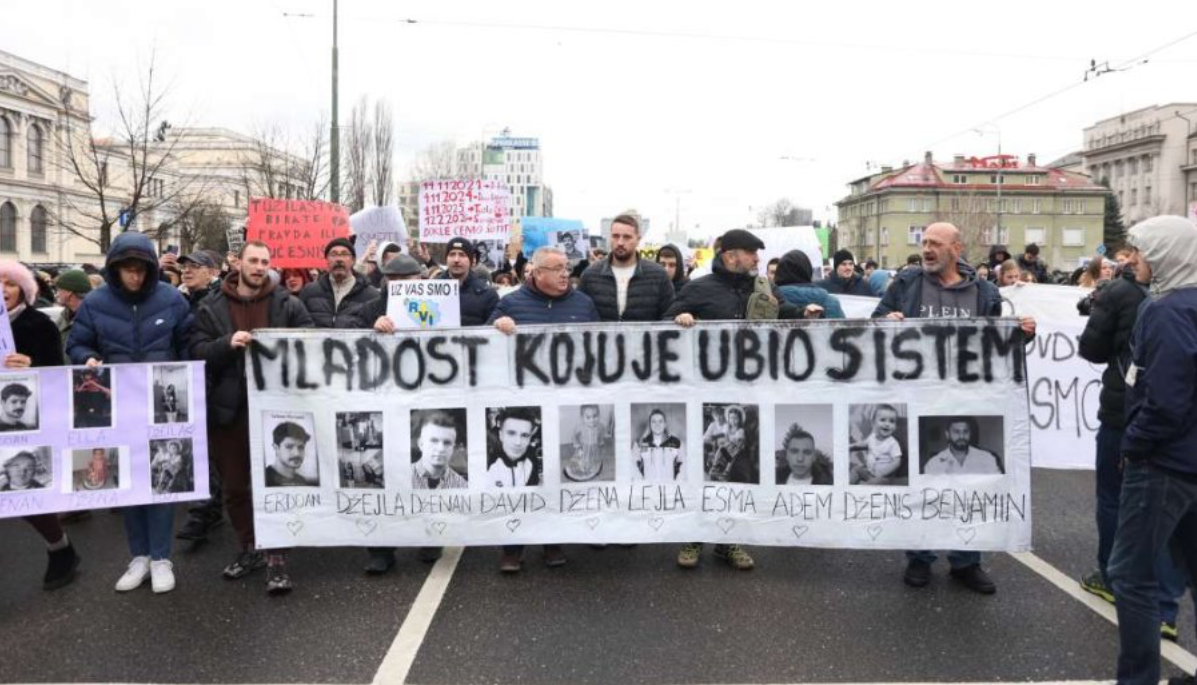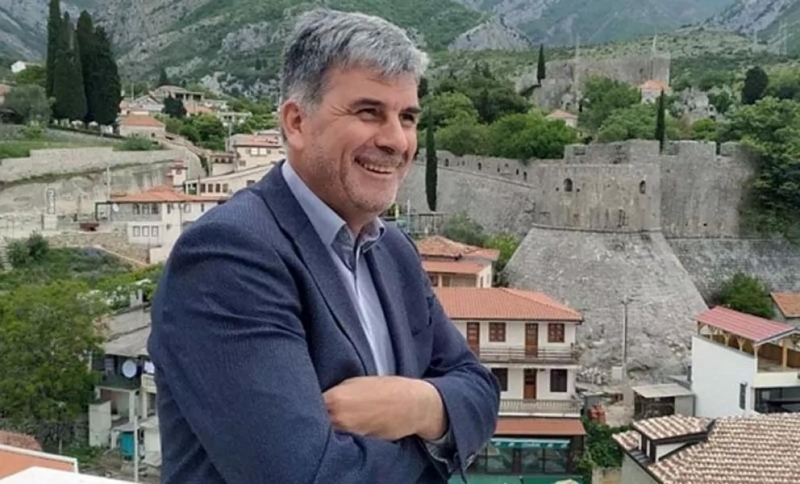Why do we remember? Why do we, a people who just recently faced the brink of extinction and survived only through successful self-defense, remember?
The purpose of gathering annually, sharing stories, and committing to future remembrance must transcend mere tradition. It must be part of a broader historical narrative. Our experiences must carry significant weight within the broader scope of our history.
But how do we ensure our experiences remain integral to our history, shaping and reshaping it for future generations?
It is not solely the responsibility of memorial institutions. If it were, building memorials would suffice to prevent future mass atrocities. But this is not the case. And even so we do not adequately invest in the memorialization of our history. Yet failing to invest in and protect our history jeopardizes our future—that much is certain.
Our memorial institutions in Bosnia and Herzegovina reflect our inadequacies. Even when these institutions exist, they often succumb to the paralyzing bureaucracy of the Bosnian state, instead of serving as beacons for our most creative, educated, and hardworking individuals. Memorial work is not mere public relations—it is the fundamental work of history, encompassing archiving, research, collecting, preserving, and conserving. Though costly, this investment is essential to avoiding future bloodshed and shaping our own self-conception.
Yet our memorial institutions remain underfunded and understaffed. Our brightest researchers are hindered by the unprecedented politicization and corruption within Bosnia and Herzegovina’s institutions of higher learning. Thus our history and self-narrative are shaped largely by a small group of passionate volunteers.
But even if we were doing everything right, why do it at all? Why remember? The logical and natural answer is to prevent future atrocities. The fundamental question remains unanswered, though: what measures can genuinely prevent genocide, and how can we implement them?
Preventing genocide must be the cornerstone of our strategic and political calculus. This extends beyond Srebrenica to include the concentration camps in Omarska, Trnopolje, Dretelj, and elsewhere, the rape camps across Bosnia, the mass executions and mass graves, the widespread destruction of cultural heritage, the forced expulsions of hundreds of thousands of civilians. In short, the totality of the aggression against Bosnia and Herzegovina between 1992 and 1995.
How, then, do we integrate Srebrenica into our strategic and political framework? The most effective way is to ensure that Bosnia and Herzegovina's security and military institutions are never again hijacked and used against us, as was the case with Yugoslav institutions in the early nineties. It is crucial that intelligence, law enforcement agencies, and armed forces, along with their leaders, constantly remember that the seemingly impossible has already happened. And that they likewise defend the integrity and functionality of those institutions, regardless of the pressures mounted against them.
Our political leaders have a special responsibility to ensure that our security is overseen by the best and brightest, free from political interference or internal conflicts. That it is love of country and the love of one’s people and community that informs their work within those institutions. That is, true, earnest, deliberate, committed patriotism.
We may believe we are entitled to a life of freedom and prosperity without looming threats, but that right must be earned and it must be defended anew by each new generation. This is our most basic and vital task, requiring constant vigilance, education, awareness, and restraint from collective paranoia. In short, we must ensure that any potential aggressor understands that the costs of attacking us and our Bosnian homeland will always massively outweigh any benefit they imagine they may gain through such actions. We must remind them, through our commitment to the defense of Bosnia and Herzegovina’s sovereignty and democracy, that many have sought to conquer these lands. None have succeeded.
The burden of nation and state-building cannot rest solely on memorial institutions or genocide survivors. It is a collective task requiring a collective effort. Alas it is rarely the case in practice. Frequently, we find ourselves isolated, as if our struggle in Srebrenica, in Eastern Bosnia, does not concern the entirety of the Bosnian and Bosniak nations.
The Bosniaks are a minority in Europe, historically a continent where minorities were annihilated, and their suffering swept under the rug to allow the continent to “progress”. We are a minority in the Balkans, where historically, the mass murder of Muslims was seen as part a process of “liberation” and national “self-determination”. The mass murder of Bosniaks and Muslims has become so normalized in certain parts of the Balkans—Serbia foremost—that convicted genocidaires are considered folk heroes. A practice which European and American officials may find distasteful, but not one that will prevent them from sponsoring the regimes which propagate such views among their populaces.
No matter how cynical it may sound to some, we owe loyalty to only ourselves and no cause other than our own; the cause of Bosnian sovereignty, statehood, and security. We are too few, too divided, too vulnerable to waste our time and resources on struggles which do not advance the central objectives of our present political struggle.
For as long as Bosniak children in Eastern Bosnia attend schools where they cannot use their language or learn their history, we have no loyalty to anyone but those children. For as long as Bosniaks in Eastern Bosnia live under an apartheid regime, our sole focus must be on their freedom and the articulation of their democratic agency. We have no more pressing cause or issue than full legal and political equality in our own homeland. Because our history teaches us that we will either live as free women and men in the whole of Bosnia and Herzegovina, or we will not live at all.


